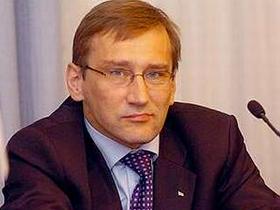 Remember the 1990s? We lost two of our most beloved celebrities, John F. Kennedy, Jr., the genetic embodiment of America's post-war high, and Princess Diana, who made anyone anywhere want to listen to Bananarama and go water skiing. Women drooled over steamy photos of JFK Jr. bearing his bare chest and men sheepishly peeked at Di's bikini in any number of tabloid photographs. And then they were both dead - John John took not only his life but his wife's and her sisters in a plane crash off Martha's Vineyard. Di died in a car crash in Paris. And we all partied on like it was 1 9 9 9.
Remember the 1990s? We lost two of our most beloved celebrities, John F. Kennedy, Jr., the genetic embodiment of America's post-war high, and Princess Diana, who made anyone anywhere want to listen to Bananarama and go water skiing. Women drooled over steamy photos of JFK Jr. bearing his bare chest and men sheepishly peeked at Di's bikini in any number of tabloid photographs. And then they were both dead - John John took not only his life but his wife's and her sisters in a plane crash off Martha's Vineyard. Di died in a car crash in Paris. And we all partied on like it was 1 9 9 9.But these are the Oh Ohs, dear souls. These are the times that try men's souls. Is it a decade of catastrophe? I am not sure. So many are not here that were here before. But it is a decade for scratching your head. In 1999, the film South Park: Bigger, Longer, and Uncut was released. Saddam played a central role. Today, he was hanged. He exists no longer. And, as a bonus, the Iraqis got it on tape. And, suddenly, those old jokes aren't quite as funny anymore.
A big wave comes and carries away thousands after thousands of lives. A big storm comes and sinks one of America's most culturally significant cities. And, so long ago, two planes came and topple two of New York's most prominent office buildings. None of it made any sense. Everywhere are corpses, but sanity? It's nowhere to be found.
Inside ourselves we used to feel, at least, a modicum of stability. But now, if they told you that 2+2 = 5, you might start to believe them. Up *could* be down if the right people told you so. Dreaming *could* be awakening. All I have are the same pictures and text you are looking at. Change it to say, "Saddam's death sentence commuted" and show some photos of him alive and he'd still be alive to most people.
How am I supposed to feel about this? What am I supposed to think. The only honest answer I can come back with is nothing. Saddam was a murderer, but his execution doesn't change that, nor does it bring justice. It's just another heavy noose in history. They hung the gang that assassinated Lincoln too, but it couldn't bring back Lincoln. Oswald was shot in Dallas, but it couldn't bring back Kennedy. They hung the criminals of the Nazi regime but it didn't bring back 12 million people. Lavrenti Beria died a Trotskyite death, but his victims sat rotting in unmarked graves. No matter how hard we try, we cannot bring them back, dear readers. Eye for eye isn't a fair trade, it just means two guys are missing eyes instead of one. I am not a religious man, but sometimes I wonder what God would say about all of this. Most times I think he would just shrug his shoulders.
















